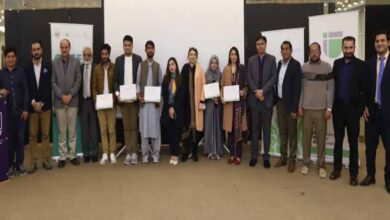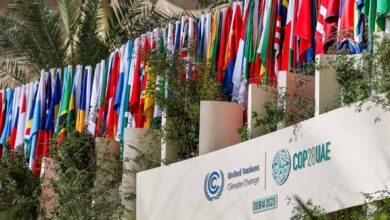Policy Experts Call for Urgent Reforms to End Open Waste Burning in Pakistan

Islamabad (Asghar Hayat) The Institute of Urbanism (IoU), with the support of the Royal Academy of Engineering (RAE), convened a high-level Policy Dialogue on “Tackling Open Waste Burning Through Policy Reforms”. The Dialogue brought together stakeholders from across the public and private sectors, academia, civil society, and environmental organizations to address the escalating environmental, health, and social implications of open waste burning, particularly in informal settlements and peri-urban areas. With Pakistan generating approximately 49.6 million tons of municipal solid waste annually, of which 30–40 percent remains uncollected and is often burned in open spaces, the Dialogue served as a timely intervention to promote evidence-based, inclusive, and sustainable policy frameworks. Dr. Ejaz Ahmad, Executive Director of the Institute of Urbanism, emphasized the need for systemic change. “Open waste burning is not only an environmental hazard but also a public health emergency. Through integrated policy reforms, we can empower local governments, communities, and innovators to create sustainable waste systems that leave no one behind.” Waleed Hameed, Director of Corporate Social Responsibility and New Initiatives at Five Star Pvt. Ltd., added: “The private sector can play a catalytic role by investing in scalable solutions for waste-to-resource transformation. Cross-sector collaboration is key to accelerating impact.” The event featured a panel discussion moderated by Tayyaba Pervaiz, Program Coordinator at IoU, and included voices from operations, environmental conservation, academia, and eco-entrepreneurship. “The operational capacity of municipal systems must be expanded to serve informal settlements, where open burning is most prevalent,” said Dr. Hamid Iqbal, Senior Manager Operations at the Rawalpindi Waste Management Company (RWMC). Representing the academic perspective, Dr. Samia Qadeer, Professor of Environmental Sciences at Allama Iqbal Open University (AIOU), stated that, “There is a critical need for a national household waste policy. Academia must play a central role in supporting evidence-based policymaking and embedding environmental education into public discourse.” Zeeshan Ahmed, Coordinator at WWF-Pakistan, drew attention to the environmental consequences of open waste burning. “This practice releases particulate matter, dioxins, and other toxic pollutants. The climate implications are profound, and it is imperative that policy frameworks internalize these environmental costs.” Highlighting innovation as a driver of transformation, Afsheen Tajammul, Start-up Lead at 2Insects, shared: “Eco-entrepreneurship has the potential to offer viable alternatives to open waste burning. Start-ups need an enabling ecosystem that supports circular business models and integrates informal waste workers into the formal economy.”




